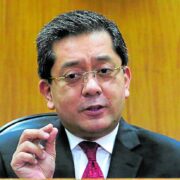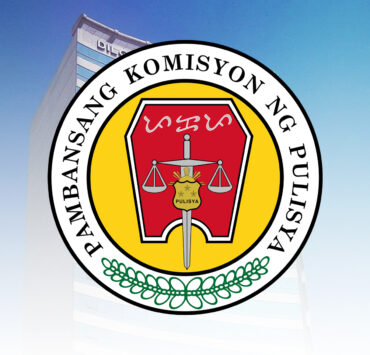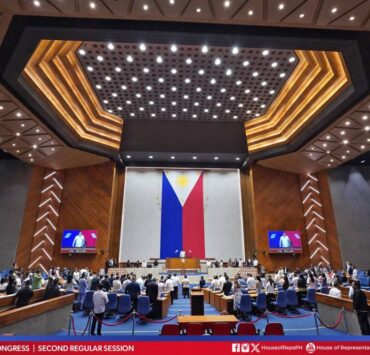Amending UHC law will bankrupt PhilHealth, broad coalition warns

Health-care professionals, labor groups and communities are asking lawmakers to defer amendments to Republic Act No. 11223, or the Universal Health Care Act. They warned that these will have catastrophic impact on the sustainability of the Philippine Health Insurance Corp. (PhilHealth).
The proposed amendments include the reduction in premium contribution rates and shouldering 50 percent of the premium for the more than 2 million overseas Filipino workers.
The groups, composed of at least 60 medical organizations including the Philippine Medical Association (PMA), warned that House Bill No. 11357 and Senate Bill No. 2620 could result in a 30-percent reduction of the state insurer’s income and a P90-billion deficit for this year alone.
Multi-billion deficit
Among the common provisions of HB 11357 and SB 2620 is the lowering of the premium contribution rates of PhilHealth members from the current 5 percent down to 3.25 percent for the Senate version, and 3.5 percent for its House counterpart.
SB 2620 proposes a 0.25 percent increase in contributions per year, capping at 4 percent in 2028. Meanwhile, HB 11357 recommends that the rate for the succeeding years be adjusted “based on actuarial studies to be reviewed by a nongovernment, impartial, and credible independent body and approved by Congress during the budget process.”
Should these amendments pass, the groups warned, PhilHealth would face a deficit of up to P90 billion in 2025 alone. This would be its second year running in the negative as it already had a P29.8-billion cash flow deficit last year.
“The current move of Congress to amend the UHC law would pave for more budget cuts on UHC programs, and would result in the UHC law failing to fulfill its promise of affordable, accessible and quality services in all levels of the health system,” said Dr. Juan Antonio Perez III, former executive director of the Population Commission and convener of the UHC Collective.
“By 2026, PhilHealth will not be able to meet the requirement of the law to maintain a two-year reserve, and will have to seek relief from bankruptcy from the government,” he added.
Unmet goals
The bicameral conference committee is rushing to iron out disagreeing provisions before the enrolled bill is submitted to President Marcos for signing.
Amending the UHC law is a priority measure of the Legislative-Executive Development Advisory Council under the 19th Congress, which ends on June 13.
Perez noted that the UHC law took more than two decades before it was passed in 2019 and its goals have not yet been fully realized. He said the COVID-19 pandemic had disrupted its implementation, especially the rollout of PhilHealth’s Konsulta outpatient benefit package.
“Amending the law at this stage risks complicating ongoing efforts rather than solidifying the gains already made,” he said.
The groups also noted that the current PhilHealth administration under its new president and CEO Dr. Edwin Mercado is conducting a review of the rules and instituting reforms following controversies, including the transfer of P60 billion in unutilized government subsidies to the national treasury last year. The matter is now pending before the Supreme Court.
They noted that the high court’s decision would have a “significant impact” on how some of the provisions of the UHC law should be construed, applied and implemented.
“If the SC rules that PhilHealth has no ‘excess’ fund, then the premium contributions should not be decreased. The benefits should be fully implemented and expanded,” Perez explained.
“The proposed reduction in premiums, combined with the zero-budget allocation for 2025 and the P60-billion fund transfer, could precipitate a fiscal crisis in the near future, undermining the sustainability of the UHC,” he added.
Why the rush?
Dr. Maricar Limpin, president of Philippine Society of Critical Care Medicine, urged lawmakers to listen to the voice of medical experts and front-liners.
“Upon thorough review of the proposed amendments, we believe that rushing their approval could undermine the very principles and objectives of the UHC—many provisions being regressive and potentially detrimental to its successful implementation,” she said.
The Public Services Labor Independent Confederation (PSLink) and Likhaan Center also called for the deferment of any amendments “until meaningful and inclusive consultations are held with all affected sectors.”
PSLink president Annie Geron questioned Congress’ motive for rushing the amendments “without adequate assessment of the law’s implementation and without inclusive and meaningful dialogue with workers and other stakeholders.”
“We reject moves that disguise themselves as proworker, propoor—such as sudden lowering of PhilHealth contributions, or mandating the national government to cover 50 percent percent of OFW premiums—while putting the long-term sustainability of the public health system at risk,” she said.
“These are not reforms. These are populist shortcuts that endanger UHC,” she added.

















